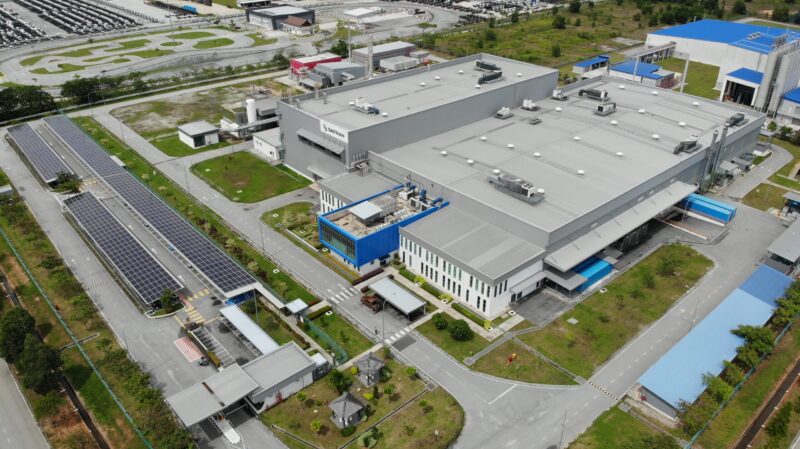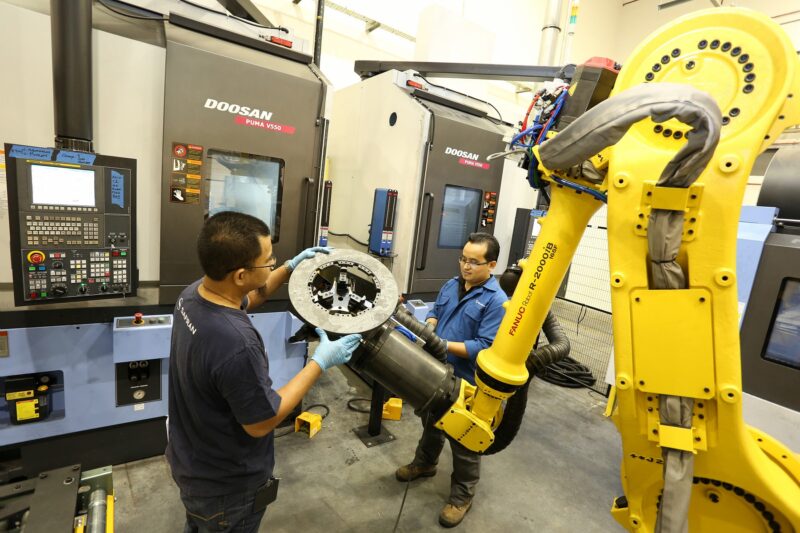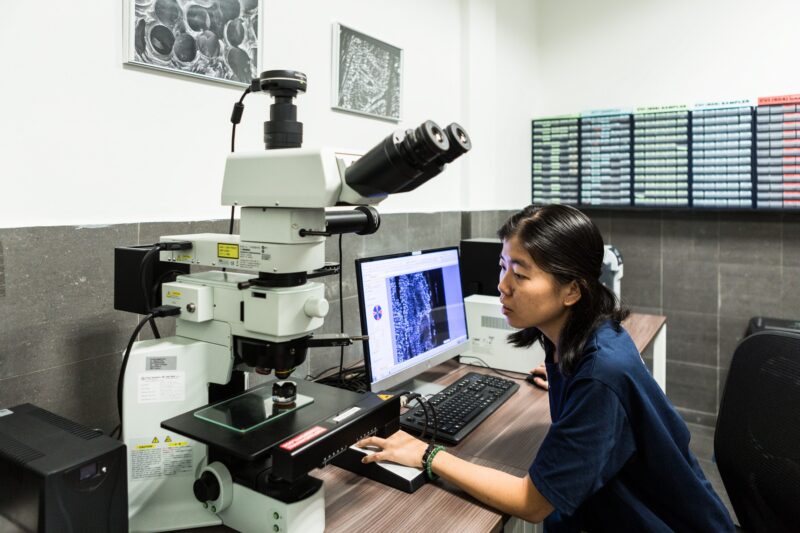
This site
is mobile
responsive

Three years ago, the global economic slowdown posed unprecedented challenges to businesses across sectors, including aviation. However, today, thanks to robust support from industry leaders, Malaysia’s aviation and aerospace industries have emerged stronger and more resilient than ever before.
With over 230 companies engaged in vital activities such as maintenance, repair, and overhaul (MRO), aero-manufacturing, and advanced training, Malaysia’s aerospace sector is on a steady growth trajectory. Yet, this growth comes with a pressing challenge in an era marked by increasing environmental awareness and concerns about climate change. The aerospace sector globally faces mounting pressure to reduce its carbon footprint, minimize waste, and embrace sustainable practices throughout its supply chain.
Malaysia has set a clear goal for its aerospace industry – to become Southeast Asia’s top aerospace nation by 2030 and an integral part of the global aerospace supply chain. One company that is instrumental to achieving this vision is Safran, a globally renowned high-technology equipment manufacturer operating across aviation, defense, and space sectors. Safran has been a stalwart in Malaysia’s aerospace industry for over 50 years, emerging as a key player.
Safran’s unwavering commitment to innovation, operational excellence, and sustainable aerospace manufacturing has led to cost-effective processes in designing, manufacturing, and supporting high added-value aerospace components. This not only minimizes adverse environmental impacts but also conserves energy and natural resources.
In 2013, Safran strengthened its presence in Malaysia with invaluable support from the MIDA and the Ministry of Investment, Trade and Industry (MITI). Safran Landing Systems, a company of the Safran Group, embarked on constructing a cutting-edge facility in Sendayan, Negeri Sembilan. Strategically located near the Kuala Lumpur International Airport (KLIA), Safran Landing Systems Malaysia employs over 140 highly skilled professionals.
This Tier 1 aerospace company specialises in the production and refurbishment of carbon brakes for commercial airplanes, serving industry giants like Boeing, Airbus, and ATR This strategic positioning not only supports robust business growth in the Asia Pacific region but also complements Safran’s other facilities in France and the United States.
Beyond efficiency and durability, Safran’s carbon brakes offer a significant sustainability advantage. Remarkably lightweight, with carbon being four times lighter than steel, they contribute to substantial CO2 reduction during flights. The demand for Safran’s carbon brakes is on a steady rise, benefiting over 500 airlines and 11,500 commercial planes worldwide.

Over the past decade, Safran has pledged to reduce its carbon footprint through investments in low-carbon technologies while expanding its long-term business prospects, aligning with Malaysia’s National Energy Transition Roadmap (NETR).
Safran Landing Systems Malaysia has proactively undertaken measures to reduce its carbon emissions, achieving a remarkable net reduction of 27% compared to its 2018 emissions. This achievement owes itself to the development and implementation of cutting-edge technologies, including on-site electricity generation using waste gas and solar panels, along with an enhanced utilities management system.
Safran is also currently in the process of developing a groundbreaking manufacturing process that could reduce its gas consumption by up to 50%. The extent of its impact on CO2 emissions, however, depends on the availability of 100% green electricity. The adoption of this technology will be contingent on the plant’s ability to rely entirely on green energy sources.
As Malaysia continues to expand its aerospace manufacturing capabilities, the integration of sustainable practices will not only enhance its competitiveness but also reaffirm its commitment to a greener, more responsible future. MIDA as the principal investment promotion agency for Malaysia will continue to pursue and facilitate high quality, capital-intensive projects and those that support the sustainable development agenda of the nation.
For more information about the aerospace industry, please contact MIDA Transportation Technology Division at https://www.mida.gov.my/staffdirectory/transportation-technology-division/
